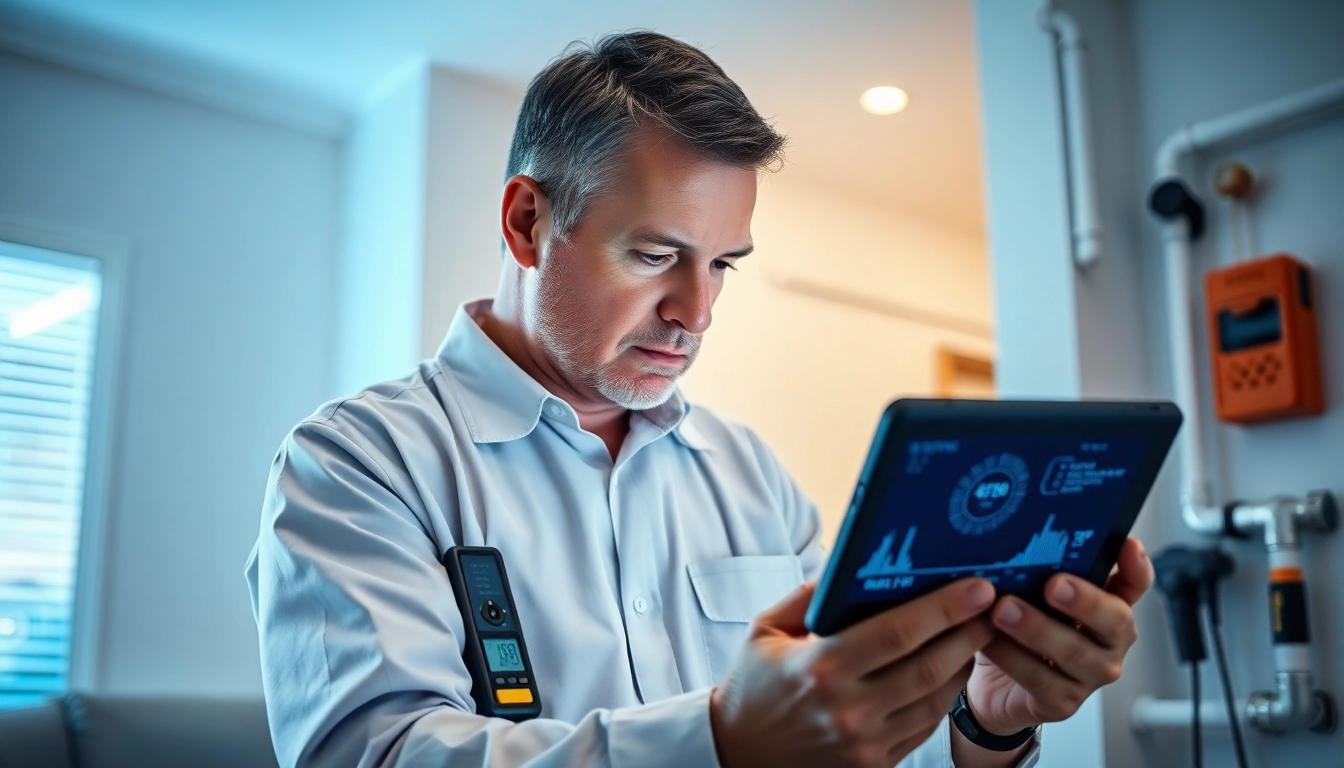Ultimate Guide to Specialist Leak Detection: Uncover Hidden Issues

Understanding Specialist Leak Detection
What is Specialist Leak Detection?
Specialist leak detection refers to the advanced methods used by trained professionals to identify leaks across various settings, including residential, commercial, and industrial environments. Unlike traditional plumbing methods that rely on guesswork and invasive practices, specialist leak detection employs a combination of high-tech tools and techniques to pinpoint underlying issues without causing extensive disruption. Techniques such as infrared thermography, acoustic leak detection, and moisture meters are commonly utilized by specialists to accurately assess leak locations.
Why Choose Specialist Leak Detection?
Opting for Specialist Leak Detection offers several benefits compared to conventional plumbing services. One key advantage is the expertise of the specialists, who often have comprehensive training in various leak detection techniques. Moreover, specialist services usually feature non-invasive technologies, reducing damage to property and providing quicker, less destructive solutions. In addition, their advanced tools help in accurate detection, potentially saving homeowners and businesses from costly repairs stemming from undetected leaks.
Common Types of Leaks Identified by Specialists
Specialist leak detection services can identify a plethora of leak types, including but not limited to:
- Water leaks: Commonly found in pipes, walls, and ceilings, these can lead to severe water damage if not promptly addressed.
- Sewer leaks: Potentially hazardous, sewer leaks can cause health risks and require immediate specialist attention.
- Gas leaks: Dangerous and potentially fatal, gas leaks necessitate immediate evacuation and professional intervention.
- Water heater leaks: These leaks may occur at the fittings, tank, and components and can lead to higher utility bills and water damage.
Importance of Early Leak Detection
How Specialist Leak Detection Prevents Damage
Early detection of leaks is pivotal in minimizing damage and preventing costly repairs. Specialist leak detection services can accurately identify the source of a leak before it escalates into a larger problem. For example, detecting a minor pipe leak before it causes significant structural damage such as mold growth or rotting wood can save homeowners thousands in repair costs. Over time, such proactive measures not only protect property but also provide peace of mind to the occupants.
Financial Benefits of Timely Leak Detection
Financially, timely leak detection can lead to substantial savings. By addressing leaks early, individuals can avoid amplification of damage, which often calls for more extensive, expensive remediation efforts. Additionally, water bill savings can be remarkable; unnoticed leaks can contribute to inflated water bills—sometimes by hundreds of dollars each month. Furthermore, homes with undetected plumbing issues can face catastrophic repair bills, which can plunge the homeowner into financial distress.
Environmental Impact of Efficient Leak Management
From an environmental perspective, efficient leak management is crucial. Leaks contribute to water waste, directly impacting local water resources. For instance, a faucet dripping once per second can waste over 3,000 gallons of water per year. By employing specialist leak detection and resolving issues proactively, individuals not only save money but also contribute to sustainable water use practices. This creates a ripple effect promoting community sustainability and conservation.
Advanced Techniques in Specialist Leak Detection
Non-Invasive Methods Used in Specialist Leak Detection
Modern leak detection techniques emphasize non-invasive methods to minimize the disruption and damage typically associated with leak repairs. Non-invasive technologies, such as thermal imaging and acoustic sensors, allow specialists to locate leaks without needing to tear down walls or dig up floors. These methods significantly reduce the overall cost and time required for leak detection and repair.
Thermal Imaging Technology for Leak Detection
Thermal imaging technology detects temperature differences in surfaces caused by subtle changes in moisture or leaks. By utilizing infrared cameras, specialists can visually map out heat signatures, pinpointing areas where leaks may originate. This method is invaluable, especially in extensive plumbing systems where leaks might not be externally visible.
Use of Acoustic Sensors in Specialist Leak Detection
Acoustic sensors are another key tool utilized in leak detection. These devices detect the sound of running water or escaping gas through pipes and walls. Typically, specialists will deploy these sensors in suspected areas of leakage, listening for sound anomalies that indicate a leak’s presence. The precision and effectiveness of acoustic leak detection make it a preferred choice among industry professionals.
Choosing a Specialist Leak Detection Service
Key Qualities to Look for in a Leak Detection Specialist
Choosing the right specialist leak detection service can be overwhelming due to the plethora of options available. To simplify this process, consider the following key attributes:
- Experience: Look for a service with established expertise in leak detection. Years of operation in the field typically reflect reliability and effectiveness.
- Technology: Ensure they employ modern, non-invasive technology for leak detection, promoting both efficiency and meticulousness.
- Certifications: Verify if the technicians are certified and trained in modern detection techniques, ensuring a knowledgeable approach.
- Customer Reviews: Positive feedback from previous clients can help gauge the efficacy and trustworthiness of the service.
Questions to Ask Before Hiring
Before engaging a specialist leak detection service, consider asking pertinent questions to affirm their competence:
- What technologies do you use for leak detection?
- Can you provide references or testimonials from previous clients?
- What are your fees and what do they include?
- How do you handle emergency cases or urgent requests?
The Role of Reviews and Testimonials in Making Your Choice
Reviews and testimonials are essential components in the decision-making process when selecting a leak detection specialist. They offer insight into the experiences of previous customers, shedding light on aspects like quality of service, response times, and overall satisfaction. Prioritize services with high ratings and positive narratives, as these can tremendously influence your expectations and decision.
Measuring the Success of Specialist Leak Detection
Key Performance Metrics for Leak Detection Services
To evaluate the effectiveness of specialist leak detection services, consider several performance metrics:
- Detection Rate: The percentage of successfully identified leaks in relation to total inspections carried out.
- Response Time: The average time taken from initial client contact to service completion, indicating efficiency and reliability.
- Customer Satisfaction: Measures based on client feedback and review scores, reflecting the quality of service and flexibility.
Case Studies: Successful Interventions Using Specialist Leak Detection
Real-world case studies illustrate the success of specialist leak detection services. For instance, a commercial property facing escalating water bills discovered a hidden leak in their plumbing system through thermal imaging technology. The swift identification and strategic repair prevented considerable structural damage and saved tens of thousands in potential repair costs. Another residential case highlighted how the use of acoustic sensors detected a small yet problematic leak behind a wall, successfully averting severe mold growth and health risks.
Feedback Loop: Continual Improvement in Leak Detection Practices
Successful leak detection specialists prioritize feedback loops to refine their processes continually. By examining each completed job, assessing customer satisfaction levels, and reviewing technological advancements, these services can adapt and enhance their approaches. Feedback from clients provides valuable insight into pain points and preferences, allowing services to evolve and meet clientele needs more effectively.






